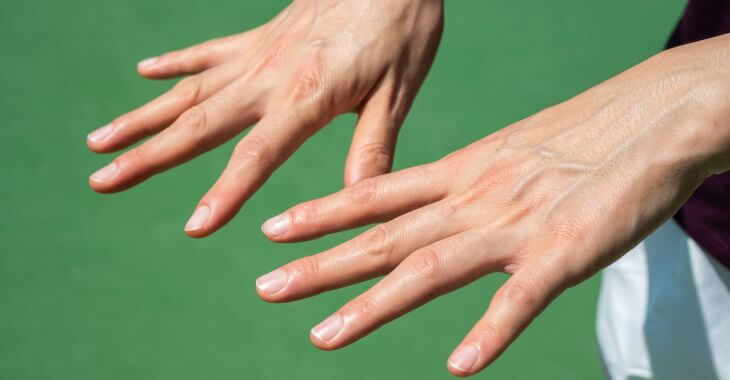Do Electrolytes Break a Fast?

Fasting has become a popular health trend, promising benefits like weight loss, improved metabolism, and increased longevity. However, a common question arises: Do electrolytes break a fast? Here is how electrolytes interact with fasting and how to maintain the balance of your body’s essential functions.
What Are Electrolytes?
Electrolytes are minerals like sodium, potassium, magnesium, and calcium that conduct electricity in the body. They are vital for hydration, muscle function, and nerve signaling. These minerals help regulate the body’s fluid balance, nerve responses, muscle contractions, and pH levels.
During fasting, your body continues to excrete electrolytes through urine and sweat. Without replenishing these minerals, you risk developing symptoms such as headaches, fatigue, muscle cramps, and dizziness. Ensuring adequate intake of fasting electrolytes is essential for a safe fasting experience.
Do Electrolytes Break a Fast?
The primary concern with consuming anything during a fast is whether it will stimulate insulin production, thus breaking the fast. Electrolytes themselves do not contain calories and do not spike insulin levels. Which is why they do not break a fast and are safe to consume.
How to Get Electrolytes While Fasting
Consuming electrolytes during fasting can help maintain balance without interfering with the metabolic benefits of fasting. Here are ways to get electrolytes while not breaking your fast.
Electrolyte Supplements
One of the easiest ways to get electrolytes while fasting is through supplements. Look for products that contain a balanced mix of sodium, potassium, magnesium, and calcium without added sugars or artificial flavors. Supplements are convenient and can be tailored to individual needs.
Natural Sources
Although consuming solid foods is generally avoided during fasting, certain natural sources like bone broth or diluted lemon water can provide essential electrolytes with minimal caloric intake. Bone broth, for instance, is rich in minerals and can be a soothing, nutritious option during longer fasts.
Salt Water
Adding a pinch of sea salt or Himalayan pink salt to your water can help replenish sodium levels without breaking your fast. This simple method ensures you stay hydrated and maintain electrolyte balance. Saltwater is an easy and accessible way to boost electrolyte intake.
Mineral Drops
These are concentrated solutions of essential minerals that can be added to water. Mineral drops offer a customizable approach to maintaining electrolyte levels.
Signs of Electrolyte Imbalance
Recognizing the signs of electrolyte imbalance is crucial while fasting. Symptoms include:
- Headaches
- Dizziness
- Muscle cramps
- Fatigue
- Nausea
If you experience these symptoms, it’s important to address your electrolyte levels immediately. Ignoring these signs can lead to more severe health issues and compromise the benefits of fasting.
Benefits of Maintaining Electrolyte Balance While Fasting
Maintaining electrolyte balance during fasting offers several benefits:
- Enhanced Hydration: Electrolytes help retain water in the body, preventing dehydration. Proper hydration is essential for overall health and well-being, especially during fasting.
- Improved Energy Levels: Adequate electrolyte levels support energy production and reduce fatigue. Balanced electrolytes ensure that your body can perform efficiently even during extended fasting periods.
- Muscle Function: Electrolytes are essential for proper muscle contraction and preventing cramps. They support physical activity and reduce the risk of muscle-related issues during fasting.
- Mental Clarity: Balanced electrolytes can improve cognitive function and reduce brain fog. Maintaining mental clarity enhances productivity and overall quality of life.
Common Electrolyte Supplements
When choosing electrolyte supplements, consider the following:
- Powders: These can be mixed with water and often come in convenient single-serve packets. Electrolyte powders are versatile and easy to carry.
- Tablets: Easy to carry and consume, tablets provide a quick electrolyte boost. Tablets are ideal for those who need a straightforward supplementation method.
- Drops: These liquid supplements can be added to water or any non-caloric beverage. Drops offer a customizable and potent way to replenish electrolytes.
Ensure your chosen product is free from added sugars and artificial ingredients to avoid breaking your fast. Read labels carefully and choose products specifically designed for fasting.
Making Your Own Electrolyte Drink
Creating your own electrolyte drink is simple and effective. Here’s a basic recipe:
Ingredients:
- 1 liter of water
- 1/4 teaspoon of sea salt
- 1/4 teaspoon of baking soda
- 1/2 teaspoon of potassium chloride (available as a salt substitute)
- Optional: a few drops of lemon juice for flavor
Instructions:
Mix all ingredients in water until dissolved. Sip throughout the day as needed. This homemade electrolyte solution helps maintain balance without adding significant calories. It’s an economical and efficient way to ensure your body gets the essential minerals it needs.

Fasting and Electrolytes: A Summary
Fasting can offer numerous health benefits, but it’s essential to manage your electrolyte intake. Consuming electrolytes during a fast does not break the fast as long as they are free from calories and sugars. Supplements, natural sources, and homemade solutions can help you maintain optimal health.
Proper electrolyte management can enhance the fasting experience, making it more sustainable and enjoyable. By understanding how to get electrolytes while fasting and recognizing the importance of fasting electrolytes, you can maximize the benefits of your fasting regimen.
The information provided on this website, including text, graphics, images, and other materials, is intended solely for informational purposes and should not be used as a substitute for professional medical advice, diagnosis, or treatment.



)